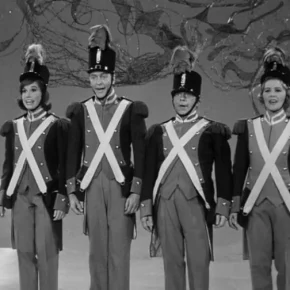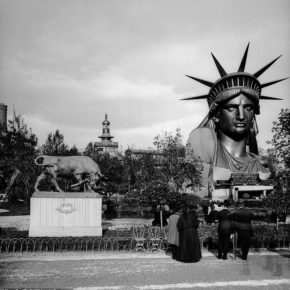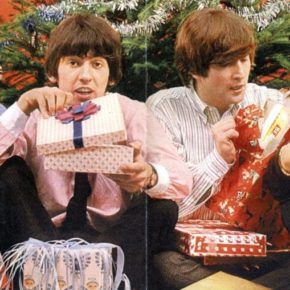Let’s make this really simple:
The District of Columbia is in a financial mess. We’re spending like mad, yet not bringing in enough revenue to pay for every commitment we have toward programs large and small. This situation stands to leave the District in a long-term financial hole unless something is done to make ends meet.
This is a matter of simple budgeting, from the simplest point of view: more money needs to come in, while less money needs to be spent (i.e. go out). It’s the same kind of budget balancing that most people do in their daily lives.
The problem lies in the fact that, when others’ money is involved, most people don’t see it as a big deal if programs bloat out of control while folks who can afford to pay more into the system continue to get a kid glove treatment. And these programs come in all shapes and sizes, from those that are smart long-term infrastructure investments to those that are tired systems that need to be retooled, rebooted or cut altogether.
Adding a further spanner to the works is that this is an election year for half of the DC Council, as well as the Mayor’s office. So there are certain issues that are political “third rails,” even if these things are necessary.
I’m glad that I’m not running for office, because this is what my budget would’ve proposed, in part:
- Creation of new tax brackets for those earning $100,000 and up, with brackets lines at $250,000, $500,000, 750,000 and $1 million plus. Those brackets would pay higher taxes than now, thus bringing more funding into the government’s general fund. CM Jim Graham (D-Ward 1) proposed something akin to this, but was shot down.
- A per-ounce tax on sodas (both sugar-sweetened and diet sodas, as neither formula has any nutritional benefit) that would fund higher quality school lunch programs that cook fresh, seasonally-appropriate food. CM Mary Cheh (D-Ward 3) proposed this, and it is in the current budget proposal.
- A 10¢ per bottle fee for all non-reusable plastic containers, whether for beverages, detergents, etc., that would be used for implementation of clean energy technologies throughout District infrastructure. This expands on a proposal that was bandied about by CM Tommy Wells (D-Ward 6).
- A complete overhaul of Department of Motor Vehicles and DDOT auto registration and parking fees. Double base registration fees, and calculate the base fee not only on gross vehicle weight but also EPA fuel economy, with small discounts for use of hybrid, electric and ULEV technologies. Increase annual residential parking pass fees to a minimum of $150 per year, and charge extra for parking permits for cars over 16 feet in length (e.g. $250 for many mid-size SUVs, $350 for full-size SUVs and trucks). Use these fees to fund the development of alternate transportation infrastructure, including bike lanes, bike racks, streetcars, Metrobus/Metrorail, and pedestrian-only zones in Downtown and other high-traffic zones.
- Do a complete analysis of each DC government department’s staffing and infrastructure, cutting redundancies and shoring up shortcomings without any spending increase.
This list could go on and on, but the basic gist is this: when a city is in a financial mess, sacrifice and austerity are needed. More money needs to come into the city’s coffers, and less needs to be spent.
Politicians don’t particularly like the concept of asking sacrifice from voters. Sacrifice isn’t popular, and voters like to rally around the pet projects and services they support. Voters are swayed by emotion and direct impact on their lives, and when proposals to cut back or eliminate programs are made it’s seen as political suicide.
Yet in times of financial crisis, doing the right thing for the long-term success of a city trumps short-term placation of the electorate. Get the house in order first, invest in long-term infrastructure, share sacrifice and make sure that everybody in the city is involved.
These are the truly hard decisions. This is what separates future-looking, pragmatic leaders from those who would rather cash in short-term benefits at the expense of long-term stability and growth.
Why am I on this kick? Because there is a choice in the race for Mayor of the District of Columbia (which, in all fairness, will be determined in the Democratic primary in September). One candidate is an often-controversial, sometimes remote and aloof incumbent who has made some incredibly hard choices for the city to help improve its long-term prospects. The other is a more old-school DC politico who, while a popular consensus builder within the Council, is touting a platform that would largely reinstate the same old and tired brand of DC pseudo-populist politics that brought the city to its financial knees many times before.
And the latter introduced a budget before the Council this morning that sacrificed essential infrastructure improvements and needed tax bracket reform to try and win a few votes come September. It was a move that was calculated, and one that failed miserably in the public perception.
And it made cemented my decision on who to back for Mayor: Adrian Fenty.















Keith Ivey
26 May 2010 — 23:15
Cheh’s per-ounce soda tax was shot down. What she got instead was removal of the sales-tax exemption for soda, which will no longer be treated as groceries. So soda will be subject to the normal sales tax, which is much less than 1 cent per ounce. Still a positive move, though.